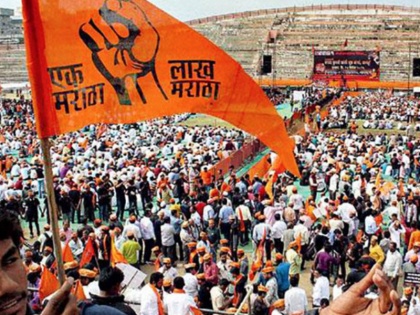Maharashtra to Conduct Survey on Maratha Social Status Across Households from 23 to 31 Jan
By Lokmat English Desk | Published: January 18, 2024 05:27 PM2024-01-18T17:27:03+5:302024-01-18T17:28:27+5:30
Mumbai: A comprehensive survey to assess the social and economic backwardness of the Maratha community in Maharashtra will begin on ...

Maharashtra to Conduct Survey on Maratha Social Status Across Households from 23 to 31 Jan
Mumbai: A comprehensive survey to assess the social and economic backwardness of the Maratha community in Maharashtra will begin on January 23 and conclude on January 31, the state Backward Classes Commission announced.
The survey, ordered by the state government, aims to gather data on educational, social, and economic parameters to determine the extent of the community's backwardness. The findings will be crucial in informing potential policy decisions, including reservations for the Maratha community.
The Gokhale Institute of Politics and Economics has developed software specifically for this survey. Data collected by 154-question questionnaires will be populated directly into this software by trained enumerators.
Intensive Training for Enumerators
To ensure accurate data collection, the commission has prioritized thorough training for enumerators and supervisors. A two-day training program will be conducted on January 20 and 21, with master trainers subsequently cascading the knowledge to district- and municipal-level trainers.
"One trainer will be assigned for every 300 enumerators, with two or three trainers for groups exceeding 300," the commission specified. Following this, district and taluka-level nodal officers and assistant nodal officers will also receive training.
Structured Data Collection and Verification
Each enumerator will be responsible for surveying 150-200 households, equipped with a unique identity card and marker pen for household identification. The collected data will be centralized, analyzed, and categorized, with mechanisms in place to rectify potential errors.
"Citizens' suggestions are also welcome," the commission emphasized, noting that a window for public feedback was open until January 19.
Addressing Logistical Challenges
The ambitious timeline and extensive scope of the survey present logistical challenges. While concerns regarding the adequacy of enumerators and supervisors have been raised, the commission assured that all necessary measures are being taken to ensure the survey's success.
"Dedicated clerical support will be provided to nodal officers and assistant nodal officers at district and taluka levels," the commission stated. Additionally, taluka-level trainers will receive a ₹10,000 honorarium, along with a separate remuneration scheme based on the number of households surveyed.
The Maratha community survey marks a significant step towards understanding the social and economic realities of this large and historically influential group in Maharashtra. The findings hold the potential to shape policy decisions with far-reaching consequences for the community's future.
Open in app